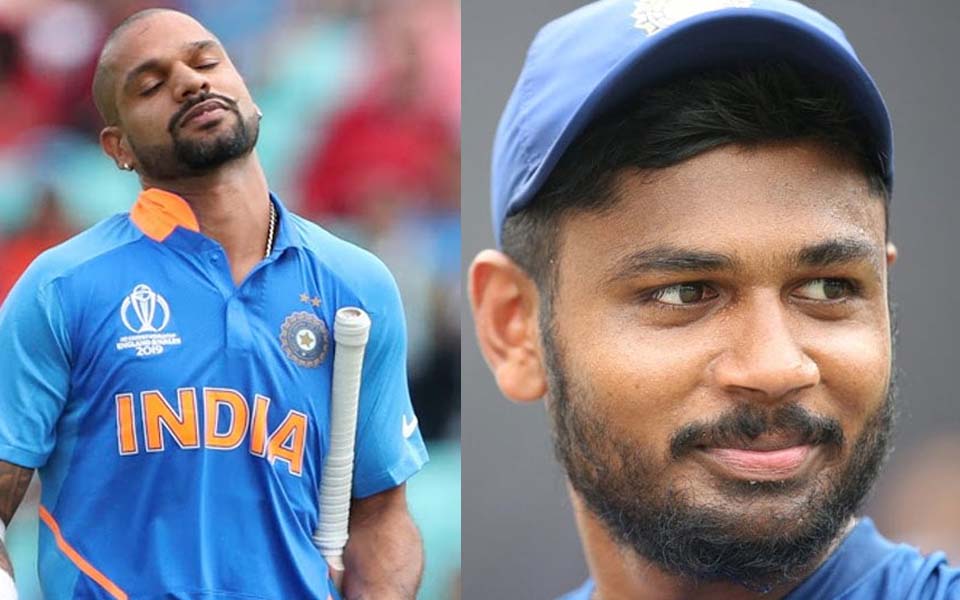New Delhi, Nov 27: Opener Shikhar Dhawan was on Wednesday ruled out of the T20 International series against the West Indies due to a knee injury, making way for Sanju Samson, who was dropped without getting a chance in the recent series against Bangladesh.
Dhawan suffered a deep cut on his left knee during a Syed Mushtaq Ali Trophy game against Maharashtra in Surat, the BCCI said in a statement.
"The BCCI Medical Team assessed him on Tuesday to review the healing of his wound. The BCCI Medical Team has suggested that Dhawan needs some more time for his stitches to come off and his wound to heal completely," the BCCI revealed.
"The All-India Senior Selection Committee has named Sanju Samson as Dhawan's replacement for the T20I series," it added.
The T20 series against the West Indies gets underway on December 6 in Hyderabad. The other two matches will be played in Thiruvananthapuram (December 8) and Mumbai (December 11).
Kerala player Samson was dropped from the side without getting a single game in the home series against Bangladesh earlier this month. The dropping drew criticism with several former players questioning the logic of not playing him at all against Bangladesh.
The 33-year-old Dhawan is expected to be fit for the one-dayers against the Caribbean team but is under tremendous pressure due to his patchy recent form. The three-match ODI series against the West Indies starts on December 15 in Chennai.
Dhawan was off-colour in the recent series against Bangladesh accounting for 91 runs in three appearances. His form hasn't exactly been the best even in the ongoing Syed Mushtaq Ali Trophy.
Besides, the BCCI said Test wicketkeeper Wriddhiman Saha underwent a surgery on his right ring finger after sustaining a fracture during the recent Day/Night Test against Bangladesh, which India won by an innings and 46 runs.
"The BCCI Medical Team consulted a hand and wrist specialist and it was suggested that Saha undergoes a surgical fixation of the fracture," the Board stated.
"Subsequently, he underwent a successful surgery in Mumbai on Tuesday and will soon commence his rehabilitation at the National Cricket Academy, Bengaluru," it added.
India's squad for three T20Is:
Virat Kohli (C), Rohit Sharma (VC), KL Rahul, Shreyas Iyer, Manish Pandey, Rishabh Pant (WK), Shivam Dube, Washington Sundar, Ravindra Jadeja, Yuzvendra Chahal, Kuldeep Yadav, Deepak Chahar, Mohammed Shami, Bhuvneshwar Kumar, Sanju Samson.
Let the Truth be known. If you read VB and like VB, please be a VB Supporter and Help us deliver the Truth to one and all.
Dubai: Smoke was seen rising from an area near the United States Consulate in Dubai, according to witness accounts cited by Reuters.
There was no immediate official confirmation on the extent of damage or whether there were any casualties in the incident.
Earlier, the US embassy in Riyadh, Saudi Arabia’s capital, was also attacked. Authorities reported damage to the premises, but no casualties were recorded.
The developments come amid heightened tensions in the region, with Iran continuing to target US interests in the Middle East following deadly attacks launched on Saturday by Israel and the United States.
Near US embassy in Dubai pic.twitter.com/z5VTZNVxNO
— Sahil Shah (@thesahilsshah) March 3, 2026





